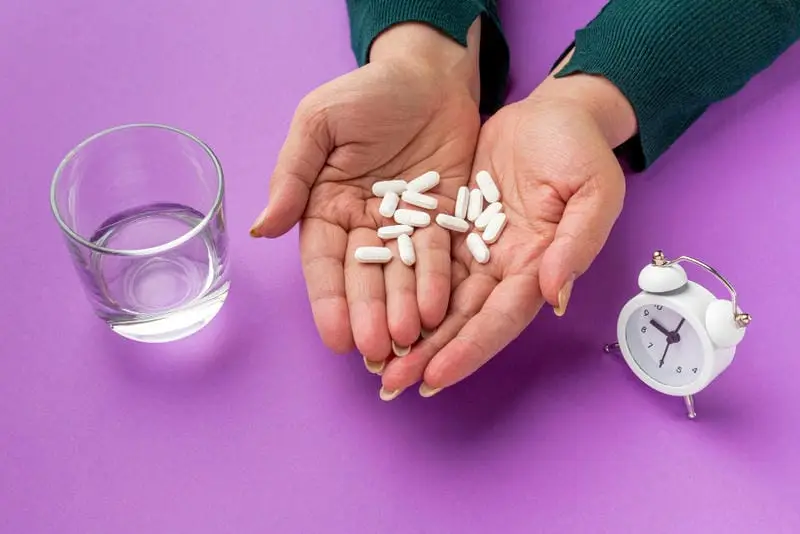- Published on: Sep 14, 2023
- 3 minute read
- By: Secondmedic Expert
Revolutionizing Healthcare With Comprehensive Connected Care Services (C3S)
Introduction
The healthcare industry has witnessed remarkable transformations in recent years, driven by technological advancements and a growing focus on patient-centric care. One of the most significant changes is the emergence of Comprehensive Connected Care Services. This innovative approach to healthcare is redefining the delivery of medical services, offering patients a more holistic and personalized experience. In this blog, we will explore what Comprehensive Connected Care Services are, how they are revolutionizing the health sector, and why they are crucial in today's healthcare landscape.
What are Comprehensive Connected Care Services?
Comprehensive Connected Care Services, often referred to as C3S, is a contemporary healthcare model designed to provide a seamless and integrated healthcare experience for patients. At its core, C3S aims to connect various aspects of healthcare, including medical professionals, data, technology, and patient care, into a unified ecosystem.
This model emphasizes collaboration among healthcare providers, such as hospitals, clinics, primary care physicians, specialists, and even home health services. It leverages technology and data-sharing platforms to ensure that patient information flows efficiently and securely between different care settings.
Key Components of Comprehensive Connected Care Services:
1. Interconnected Healthcare Providers: C3S fosters collaboration among healthcare professionals, breaking down traditional silos that often hinder efficient patient care. It encourages communication and information sharing to ensure that everyone involved in a patient's healthcare journey is on the same page.
2. Digital Health Records: Electronic health records (EHRs) play a pivotal role in C3S. Patients' medical information, including their history, test results, and treatment plans, are securely stored and accessible to authorized healthcare providers. This eliminates the need for redundant tests and allows for more informed decision-making.
3. Telehealth and Remote Monitoring: C3S embraces telehealth and remote monitoring technologies, enabling patients to receive medical consultations and monitoring from the comfort of their homes. This not only enhances convenience but also facilitates early intervention and better chronic disease management.
4. Data Analytics and AI: Advanced data analytics and artificial intelligence are employed to mine valuable insights from healthcare data. Predictive analytics can help identify high-risk patients and recommend personalized interventions, while AI-driven chatbots assist patients with routine inquiries.
5. Patient Engagement Tools: C3S places a strong emphasis on engaging patients in their own care. Mobile apps and patient portals allow individuals to schedule appointments, access their health records, and receive educational resources.
How Comprehensive Connected Care Services Help in the Health Sector
Comprehensive Connected Care Services are bringing about a paradigm shift in the healthcare sector, addressing several critical challenges and delivering numerous benefits.
1. Improved Coordination of Care
C3S fosters collaboration among healthcare providers, reducing fragmentation and ensuring that patients receive comprehensive care across various settings. This integrated approach minimizes communication gaps, leading to better care transitions and more informed decision-making.
2. Enhanced Patient Experience
Patients are at the heart of C3S. The model focuses on providing a seamless and patient-centered experience. Features like telehealth, appointment scheduling apps, and online access to health records empower patients to take an active role in their healthcare journey. This not only improves satisfaction but also leads to better health outcomes.
3. Preventive Care and Early Intervention
By leveraging data analytics and AI, C3S can identify patients at high risk of developing specific health conditions. Healthcare providers can then intervene early, offering preventive measures and personalized care plans. This proactive approach not only improves patient health but also reduces healthcare costs in the long run.
4. Efficiency and Cost Savings
C3S streamlines healthcare processes, reducing administrative burdens and eliminating redundancies. The use of digital health records and telehealth can lead to significant cost savings for healthcare organizations. Moreover, by focusing on preventive care and chronic disease management, C3S can lower the overall cost of healthcare by reducing hospitalizations and emergency room visits.
5. Access to Specialized Care
In remote or underserved areas, access to specialized healthcare services can be limited. C3S overcomes geographical barriers by enabling patients to connect with specialists through telehealth. This ensures that even those in rural or underserved communities can access the expertise they need.
Conclusion
Comprehensive Connected Care Services represent a significant leap forward in the evolution of healthcare. In an era where information and technology are abundant, this model harnesses their power to improve patient care, enhance efficiency, and reduce healthcare costs. As the healthcare sector continues to evolve, C3S is poised to play a pivotal role in shaping the future of medicine, ultimately offering a brighter and healthier tomorrow for all.
Incorporating Comprehensive Connected Care Services into healthcare organizations is not just an option; it's a necessity to meet the growing demands and expectations of patients while ensuring the best possible outcomes in the complex landscape of modern healthcare.
Read FAQs
A. Comprehensive Connected Care Services, or C3S, is a modern healthcare model that aims to provide a seamless and integrated healthcare experience. It involves connecting healthcare providers, utilizing digital health records, incorporating telehealth and remote monitoring, leveraging data analytics and AI, and engaging patients through various tools and technologies.
A. Comprehensive Connected Care Services offer several benefits to the health sector, including improved coordination of care, enhanced patient experience, preventive care and early intervention, efficiency and cost savings, and increased access to specialized care. This model transforms healthcare delivery, prioritizing patient-centric care and leveraging technology to optimize outcomes.









